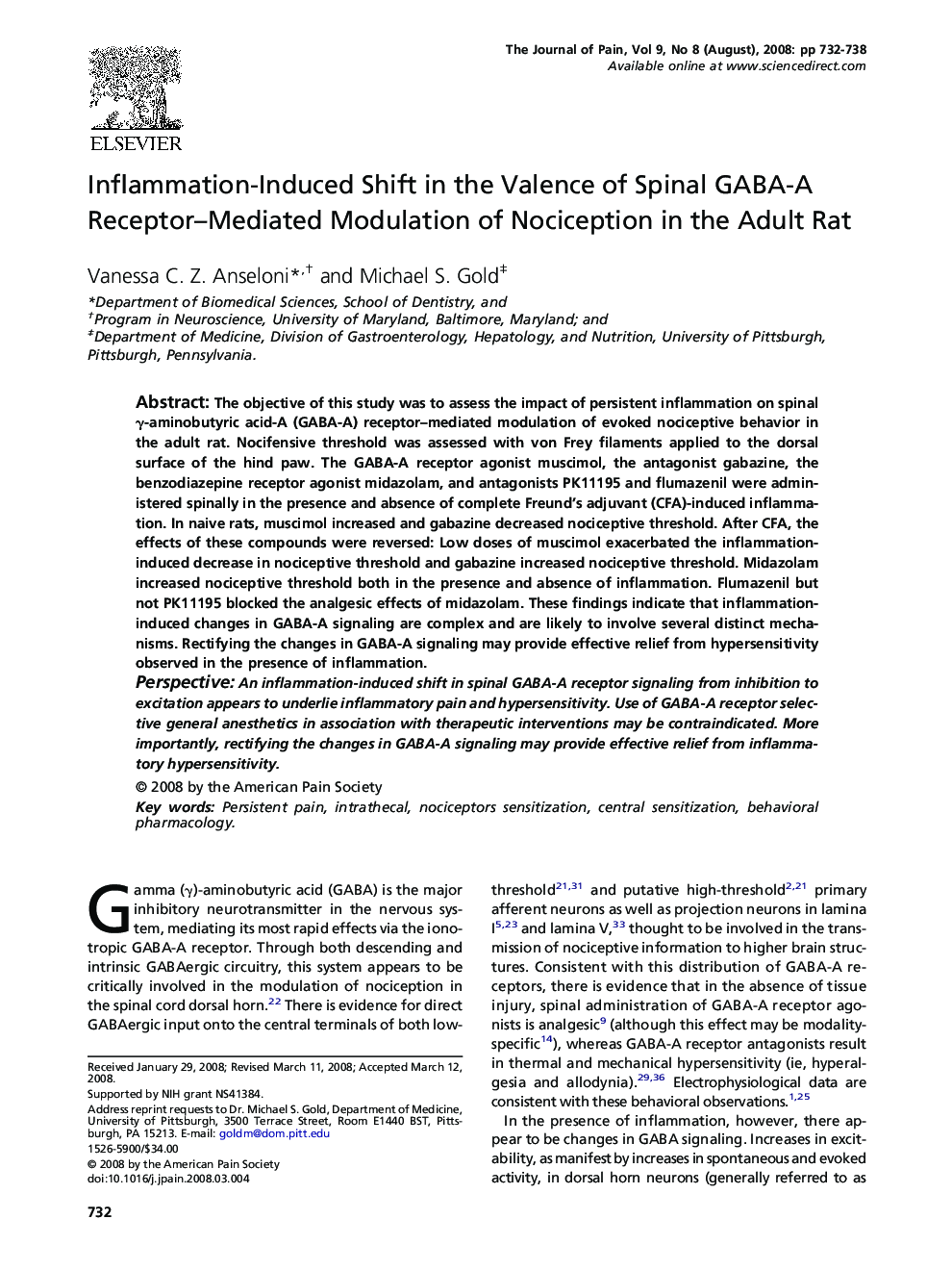| Article ID | Journal | Published Year | Pages | File Type |
|---|---|---|---|---|
| 2729535 | The Journal of Pain | 2008 | 7 Pages |
The objective of this study was to assess the impact of persistent inflammation on spinal γ-aminobutyric acid-A (GABA-A) receptor–mediated modulation of evoked nociceptive behavior in the adult rat. Nocifensive threshold was assessed with von Frey filaments applied to the dorsal surface of the hind paw. The GABA-A receptor agonist muscimol, the antagonist gabazine, the benzodiazepine receptor agonist midazolam, and antagonists PK11195 and flumazenil were administered spinally in the presence and absence of complete Freund's adjuvant (CFA)-induced inflammation. In naive rats, muscimol increased and gabazine decreased nociceptive threshold. After CFA, the effects of these compounds were reversed: Low doses of muscimol exacerbated the inflammation-induced decrease in nociceptive threshold and gabazine increased nociceptive threshold. Midazolam increased nociceptive threshold both in the presence and absence of inflammation. Flumazenil but not PK11195 blocked the analgesic effects of midazolam. These findings indicate that inflammation-induced changes in GABA-A signaling are complex and are likely to involve several distinct mechanisms. Rectifying the changes in GABA-A signaling may provide effective relief from hypersensitivity observed in the presence of inflammation.PerspectiveAn inflammation-induced shift in spinal GABA-A receptor signaling from inhibition to excitation appears to underlie inflammatory pain and hypersensitivity. Use of GABA-A receptor selective general anesthetics in association with therapeutic interventions may be contraindicated. More importantly, rectifying the changes in GABA-A signaling may provide effective relief from inflammatory hypersensitivity.
